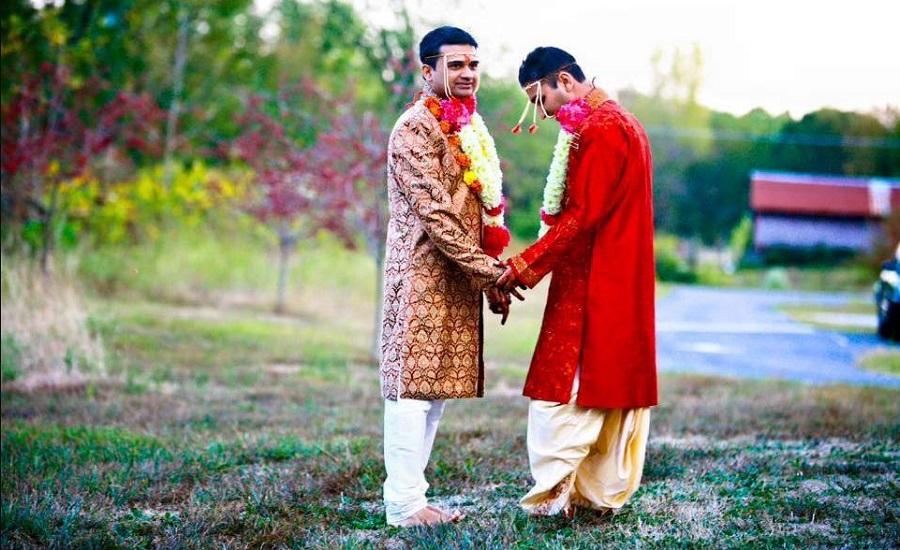Marriage, a common cultural relationship, has traditionally been recognized only between individuals of different genders, despite the use of gender-neutral terminology in most marriage laws. While society is slowly becoming more accepting of same-sex marriages, there are still many constitutional bans on such marriages in various states, leading to the denial of legal and financial rights that are granted to married couples. This includes access to jobs, shared tax returns, health benefits, and inheritance rights, which are typically granted only to patriarchal de facto couples, leaving same-sex couples excluded from these advantages. Despite recent legal reform, same-sex relationships are still not recognized in many countries, including India, reflecting the need for continued progress in the acceptance of all types of relationships.
Buy Prime Test Series for all Banking, SSC, Insurance & other exams
History of Same-Sex Relationships
Homosexuality has a long history in India, with evidence of same-sex relationships found in ancient manuscripts, statues, and relics dating back to 1500 BC. However, the rise of Vedic Brahmanism and British colonization led to the suppression of homosexual activity. The Manusmriti, for example, prescribed severe penalties for gay and lesbian behavior, including loss of caste, high fines, and whipping. Married women who engaged in same-sex relationships were punished even more severely.
The dominance of patriarchy and the influence of Victorian ideals during British colonization further marginalized homosexuality in India. Western notions of “moral and psychological” sexuality were imposed on Indian culture, leading to the stigmatization of same-sex desire. However, the definition of homosexuality has evolved over the last century, with many countries now enshrining legal protections for LGBTQ+ individuals.
South Africa was the first country to recognize the rights of homosexuals in a civil manner in 1994. Other countries, including Australia, Germany, Luxembourg, the Netherlands, Switzerland, Iceland, Denmark, Sweden, and New Zealand, have also implemented laws to protect LGBTQ+ individuals against discrimination. In the United States, the Supreme Court ruled in 1996 that no state could pass legislation discriminating against homosexuals. In India, the decriminalization of section 377 of the IPC in 2018 in the case of Navtej Singh V. Union of India was a significant step towards recognizing the rights of LGBTQ+ individuals.
Despite these advancements, there is still much work to be done to ensure full legal and social equality for the LGBTQ+ community in India and around the world.
Same-sex Marriages: The Global Scenario
The acceptance of same-sex relationships and marriage differ significantly across the globe, with some countries fully embracing it and others criminalizing it. While many countries have decriminalized homosexuality and adopted policies to protect the rights of LGBTQ+ individuals, over 70 countries still consider it a heinous offense, with some even imposing the death penalty. Despite this, same-sex marriage has legal status in 25 countries, including Germany, South Africa, Canada, and Brazil, with civil partnerships offered in many others. The LGBTQ+ community is celebrated in events such as Sydney’s Midsumma and Johannesburg’s Gays & Lesbian Pride.
While progress has been made in recognizing the rights of same-sex couples, there is still a long way to go in terms of full equality. In some countries, homosexuality is punishable by lifetime incarceration, and even in countries where it is legal, there may be age restrictions or limitations on rights and privileges. However, the global movement towards legalizing same-sex marriage and protecting the rights of the LGBTQ+ community continues to gain momentum, with organizations and individuals pushing for greater acceptance and equality.
Conclusion
The debate surrounding the legalization of same-sex marriage is not a democratic one but rather a religious one. However, it is important to consider all the reasons for and against the legalization of same-sex marriage. Homosexuality is not an offense; it is simply another way for individuals to find love, seek physical fulfillment, or obtain enjoyment. Therefore, there is no justification for restricting two gay men to a civil ceremony that does not grant them the same rights and security that heterosexual couples enjoy.
Love is a promise and a symbol of affection, regardless of the gender of the individuals involved. Allowing two men or two women to show their love and commitment through marriage does not harm or damage the values of marriage. It is time for our society to recognize that homosexuality is not abnormal, and we must promote equal rights for all individuals, regardless of their sexual orientation. Legalizing same-sex marriage is a step towards achieving human rights for all.
In conclusion, our current method of not promoting marriage between homosexuals does not support homosexuals or protect society as a whole. It is time for us to adopt a more comprehensive and inclusive approach towards addressing same-sex marriages. We must recognize that homosexuality is a natural and normal part of human diversity, and legalize same-sex marriages to promote equal rights and protect the human rights of all individuals.
You may also read:
- India Heatwave: Maharashtra, Bihar, Odisha, West Bengal, and Delhi-NCR Witness Scorching Temperatures
- NHAI Enables FASTag Based Payments at Forest Entry Points
Find More Miscellaneous News Here



 Indian Olympic Medal Winners List Till N...
Indian Olympic Medal Winners List Till N...
 Who is the Inventor of the Gramophone?
Who is the Inventor of the Gramophone?
 HS Dhaliwal Appointed New DGP Of Andaman...
HS Dhaliwal Appointed New DGP Of Andaman...
